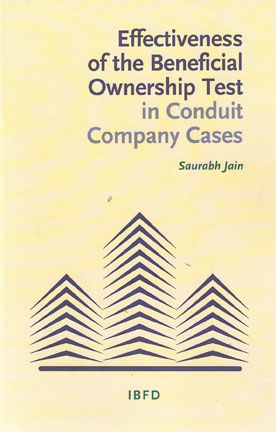
Since the introduction of the term “beneficial owner” to the OECD Model Tax Convention in 1977, courts and the OECD have struggled to interpret the term, and to use it as a test for deciding conduit company cases.
If applied in a formal legalistic sense, the beneficial ownership test has no effect on conduit companies because companies are legal persons that, in law, own both their assets and their income beneficially. By contrast, in a substantive sense, a company can never own anything because economically a company is no more than a matrix of arrangements that represents individuals who act through it.
Faced with these opposing considerations, courts and the OECD have adopted surrogate tests for the beneficial ownership test. These tests, however, were originally meant to counter different kinds of tax planning strategies. They did not indicate the presence of beneficial ownership. Therefore, they are inappropriate for determining the correct tax treatment of passive income derived by conduit companies.
This book examines the conflict between the general policy of double tax treaties embodied in the beneficial ownership requirement and the concept of corporations. The work highlights the shortcomings of surrogate tests with the help of analyses of reported conduit company cases. It offers an alternative approach for interpreting and applying the beneficial ownership test. It contains a critique of the work of the OECD Committee on Fiscal Affairs before the insertion of the term, and suggests appropriate amendments to relevant parts of the official Commentary on the OECD Model Tax Convention.